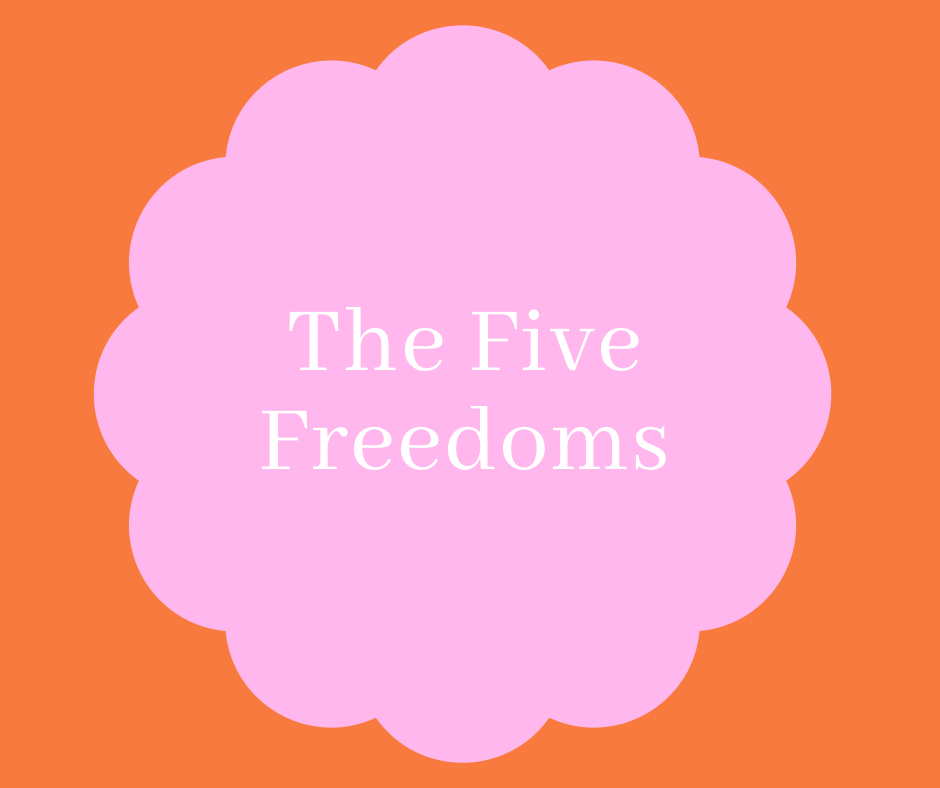The five freedoms for animals are a set of principles that outline the basic rights and welfare standards that animals should have. They are:
These five freedoms serve as a guideline for promoting animal welfare and ensuring that animals are treated ethically and with dignity.
- Freedom from Hunger and Thirst: Animals should have access to a proper diet and fresh water that meets their nutritional needs.
- Freedom from Discomfort: Animals should live in an environment that provides adequate shelter and comfort, protecting them from extreme weather conditions or physical discomfort.
- Freedom from Pain, Injury, or Disease: Animals should be protected from unnecessary physical or mental suffering. They should receive appropriate veterinary care and be free from pain or illness.
- Freedom to Express Normal Behavior: Animals should have enough space, proper facilities, and opportunities to engage in natural behaviors and express their species-specific behaviors.
- Freedom from Fear and Distress: Animals should not experience fear or distress caused by the conditions they live in, including handling, housing, and any other aspects of their environment. They should be treated with kindness, consideration, and respect.
These five freedoms serve as a guideline for promoting animal welfare and ensuring that animals are treated ethically and with dignity.

